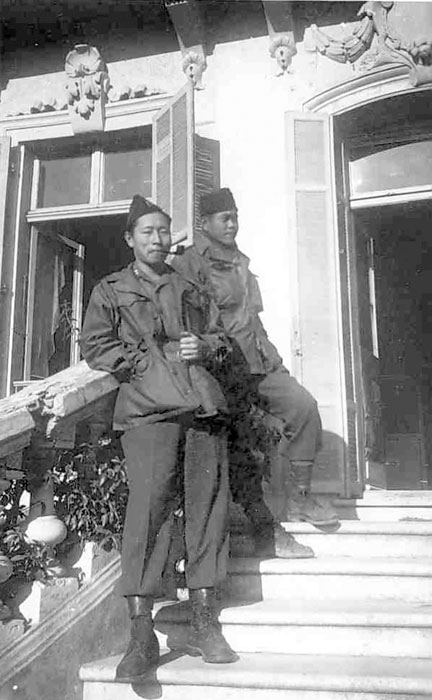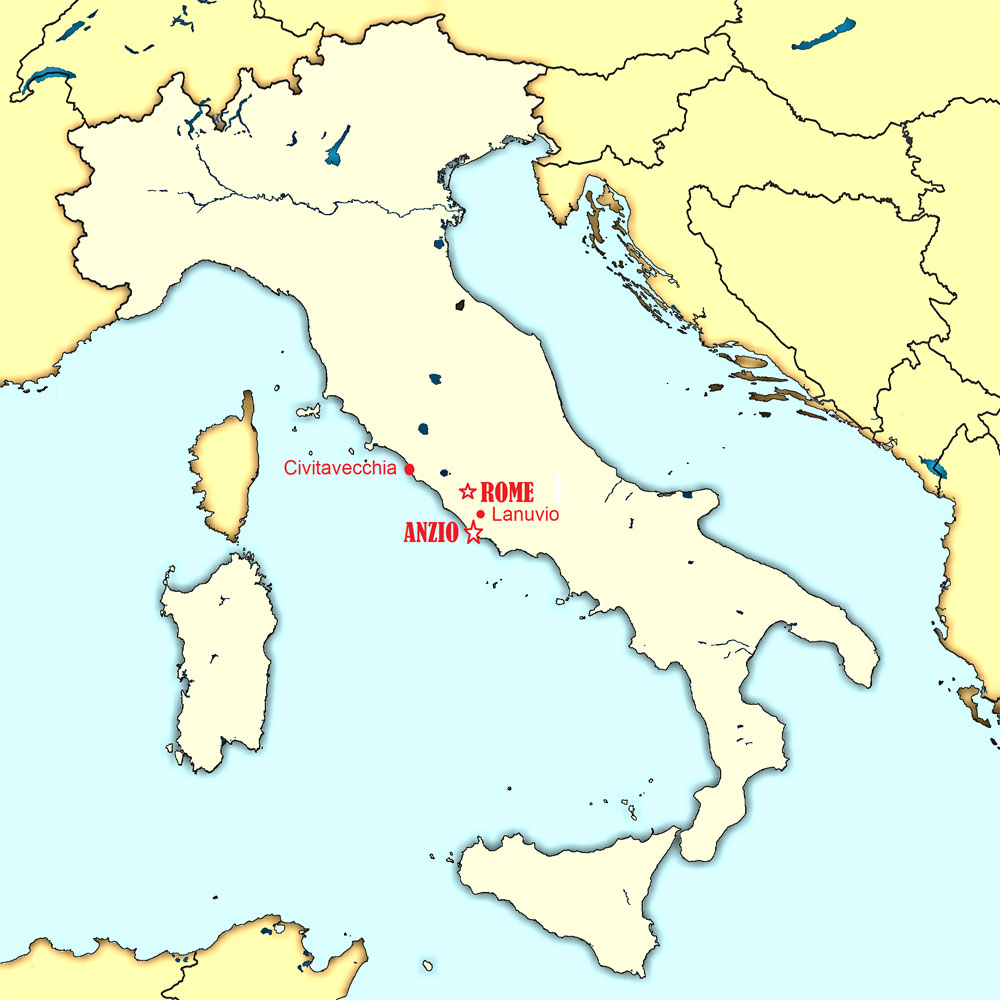ORAL HISTORY CLIPS
Young Oak Kim [interview 047a]
Starts on Tape Five, between 20 and 22 minute marks
YOUNG OAK KIM:
I said, “Irving Akahoshi and I will then cross that barrier. We’ll take our chances with the German mines and we’ll cut the lower strands of the wire as we go across.” And so that’s what we did. We got the “okay” and that’s what we did. I know Sakae [Takahashi], the way he said goodbye, he was saying goodbye to me for the last time. So was everybody else in B Company, they also had come. But they also had gotten three volunteers of BAR men to stay there in an exposed position in case I was able to get back or if there was a firefight to cover up our retreat. And so, at midnight, Irving and I started across. And I think we were very, very lucky because we were able to cut those barbed wires on the German side without, you know, setting off a mine. The other thing is we were able to feel and avoid the German mines. What you have with German mines is if you run across like a piano wire, if you cut it, it’ll explode, if you pull it, it’ll explode, and of course if you press on the mine it’ll explode. So you gotta be extra, extra careful. And I didn’t have time to talk to Irving, and I didn’t have time to put toilet paper on the ground where the Germans could see it or whatnot. But all I could do is motion and he had to be smart enough to be able to know what I am talking about. We got across, probably very close to one o’clock in the morning. And so now we’re laying on that [22:00] little ledge between the barbed wire and the German ditch. The Germans could reach out and touch us if they so choose. I picked that time because I figure when they first come up they’re gonna be very alert. But around midnight they’re gonna be—nothing is happening and whatnot, they’re gonna be least alert. And they’re—and then in another hour or two, they’re gonna be ready to leave, and so they’re gonna be busy. And so Irving and I laid there until almost four o’clock in the morning. We had to lay motionless, make no sound and just pray to God and wish that a German doesn’t look more carefully or even just doesn’t look, period, you know.
INTERVIEWER:
You’re fully exposed? I mean right there near the . . .
KIM:
Yeah. We’re right, you know, the—we’re—actually, you’re further away right now than we were to the Germans at that point. We’re laying right here and they’re sitting right there walking back and forth and talking and whatnot, and all they gotta do is look and they can see us. But, see, if you’re not alert and you don’t think that there’s any real danger and you or—who would think there’d be someone dumb enough to come across that barbed wire and lay there in front of us, see? They didn’t look. And of course about three o’clock or very close to 2:30 or 3:00, now they’re getting busy ready to leave, you know, they’re picking up their weapons and everything and they got their routine. And so very close to 4:00 or 4:30 or something like that, with the first trace of light come in, they get—they leave. So, Irving and I followed them, except we stay [24:00] about 10 yards behind ’em. And so, when they go into their bunkers we stop. Now it’s clear daylight, see, and we have to wait until they clean their weapons, eat breakfast and whatnot, and, I guess, chew over whatever happened that night and what they’re gonna do, and then around 9 o’clock they fall asleep. Then when they fall asleep, then Irving and I started to crawl. And we have close to 600 yards to go, ’cause even though the bunker is fairly close, maybe 200, 250 yards away, we gotta crawl way, way back there and come up from it from the rear, ’cause we don’t want to be coming up from the front. And so we do that. And of course the danger is, the wheat has grown up to about that tall [indicates approximately 4 feet], so as we crawl we crushed the wheat, see, and so the path is very, very obvious. All the American side has been alerted. All the observers are—they can see us and we’re so clear and we’re right there and the Germans observers are right above us and they’re waiting for something to happen and nothing happens. And of course after two hours, little by little, the wheat comes back up. But for better than two hours you could see the path, you can see us because the wheat is—there’s a path right there, see. We come up on the bunker from the rear as we expected, and we come up, let’s say, our front lines is that way, the bunker is here and we crawl up to the left of the bunker. And we figure our original assessment is about right. There are about six or seven Germans here, not [26:00] thirty or something like that. And not particularly armed and whatnot, but they could be armed. But we figure the headquarters are still awake and they’re talking. And so our original plan was that I was to leave Irving there, crawl around on the other side, and then on a signal we’d both throw in two grenades apiece and then hope the Germans won’t be too alerted or too awake or the sound won’t carry that much, ’cause we weren’t—we were throwing in fragmentary grenades which don’t make as big a bang as a concussion grenade. So Irving even takes his grenades off and he’s loosens the pins, and so I pat him and so I started around. I get up in the front and there’s a slit trench. A slit trench is a thing about the width of a body and about six feet long and about two and a half, three feet deep; it’s where you lay down on. And here are two Germans sound asleep, and they’re sitting there with their knees bent, intertwined, and their head back on the edge of this small little slit trench, sound asleep snoring. So I motion to Irving to come up, you know, and whatnot. Of course, he’s confused, ’cause he, you know, he’s already got the pins half out of his grenades and all that, and so he’s gotta put the pins back in and he didn’t know because this isn’t part of the plan and we hadn’t rehearsed this, so he doesn’t know what’s happening. So he comes forward and then all of a sudden, he sees the Germans, too. So we have to, on the spot, make a plan, so we hand and arm signal. Since we’re both carrying Thompson submachine guns and pistols, so we simultaneously [28:00] put the Thompson submachine gun down the mouth into the throat of both the Germans, they both wake up simultaneously. And we’re both going like this [indicating a hand sign to be quiet], and of course they’re scared to death, they don’t know what to do, you know. But they agree. So, we disarmed them and we take both their pistols and we motioned to them, they agree, that they’ll crawl in front of each of us. And so, unlike the route we took, we go straight back to that point at where we crossed the no man’s wire.





